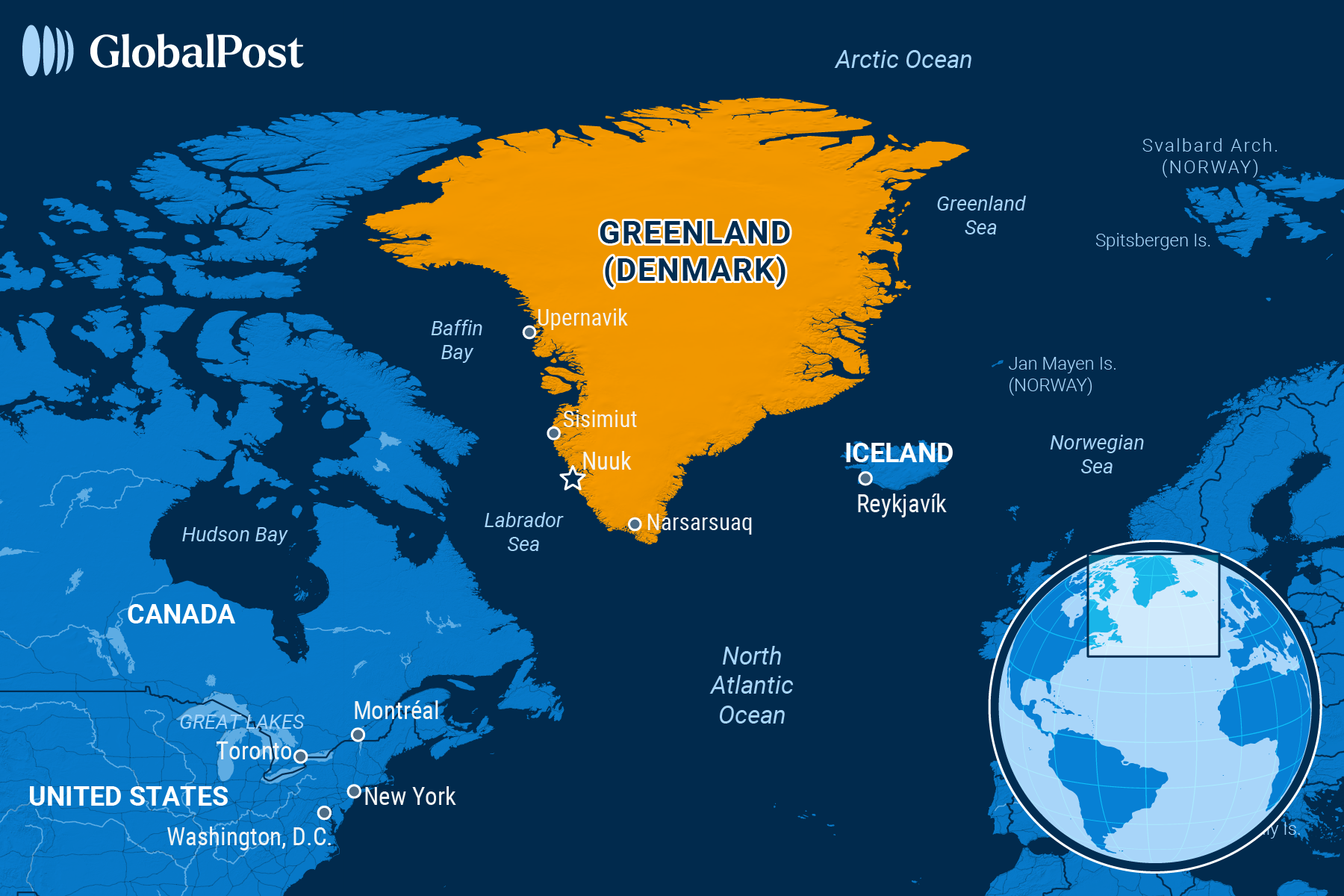Icy Reception: Greenlanders Vote Amid US ‘Threat’

After Greenland was unwillingly thrust into the spotlight in January by US President Donald Trump’s desire to acquire it, Greenlanders sprang into action.
Greenland’s Prime Minister Múte Bourup Egede called for an early parliamentary election on March 11 to win a mandate for his platform. Parliament passed a bill banning foreign or anonymous donations because of concerns over external influence in Greenland’s election campaigns, and capped private donations – political campaigns are subsidized by the state.
Now it’s considering holding a referendum on independence.
“We are in the middle of a challenging period, a period like we have never experienced in our country,” said Egede. “We have to come together.”
The strategically located and resource-rich Danish territory, with a population of about 57,000 who are mainly Indigenous, is roughly three times the size of Texas. It has its own government but Denmark controls its foreign and security policy. It was a Danish colony for centuries until 1953 but as part of the Danish Commonwealth, has the right to negotiate its independence.
Greenland also hosts the US military, which is permanently stationed at Pituffik Space Base and is critical for its ballistic missile early-warning system. For years, the US has seen the island as strategically important and more recently has grown concerned as China’s military cooperation with Russia in the Arctic has grown: Over the past five years, the pair have been conducting regular joint air and marine patrols.
As a result, even before Trump took office on Jan. 20, he openly talked about buying Greenland.
“Greenland is an incredible place, and the people will benefit tremendously if, and when, it becomes part of our Nation,” Trump said recently. “We will protect it, and cherish it, from a very vicious outside World. MAKE GREENLAND GREAT AGAIN!”
That campaign set off worries in NATO ally Denmark, which increased its funding and defense of the Arctic island and made a point of elevating it on its coat of arms. The Europeans and also the Russians are also concerned.
Last week, the Danish intelligence service (PET) said it was looking into possible foreign influence from Russia on parliamentary elections in Greenland. The PET said Russia had an interest in creating divisions within NATO, and that “increased American influence in Greenland is not in its interest.”
Meanwhile, Danish Prime Minister Mette Frederiksen and Egede have insisted that Greenland is not for sale but that Greenlanders have a right to decide their destiny.
Egede since January has repeatedly said Greenlanders “don’t want to be Americans.” A recent poll showed that 85 percent of Greenlanders oppose becoming part of the US. However, voters were split on seeing the US interest as an opportunity versus a threat.
At the same time, all five political parties in parliament have said they do not want Greenland to become part of the United States.
Now, as they go to the polls, voters will decide on Greenland’s aspirations to be independent and its relationship with Denmark and the United States.
A majority of voters support independence, according to the poll. However, the number of people who would vote against independence rose when asked if their living standards would be negatively affected – from 28 percent to 45 percent.
Greenland, rich in untapped mineral resources used for technology, relies heavily on fishing and grants from Denmark to fund its government. Recently it said that it is open for business. It also just opened a new international airport. Even so, tourism doesn’t play a significant role in its economy.
US officials are worried, however, that if Greenland were to become independent, the island could become more politically unstable – and more open to Russian and Chinese influence. It would also likely lose its NATO status. Trump reiterated his threat to “control” it last week.
Greenland’s ruling social-democratic Siumut party plans to hold a vote on independence following the election on a yet-to-be announced date because officials say that Greenland needs to be independent from Denmark to be able to negotiate its future.
Regardless of any future independence vote, chair of the Inuit Circumpolar Council, Sara Olsvig of Greenland, says it was a wise move of the prime minister to call the election now.
“This election will both be as elections usually are, but also different,” she said. “We are seeing interest in our nation in a way we have not seen before, and we should all constantly be aware of the possible foreign attempts to influence us and our choices as a people. May we all…. show that it is the people of Kalaallit Nunaat (Greenland) that controls our nation’s future and destiny.”

Subscribe today and GlobalPost will be in your inbox the next weekday morning
Join us today and pay only $46 for an annual subscription, or less than $4 a month for our unique insights into crucial developments on the world stage. It’s by far the best investment you can make to expand your knowledge of the world.
And you get a free two-week trial with no obligation to continue.
